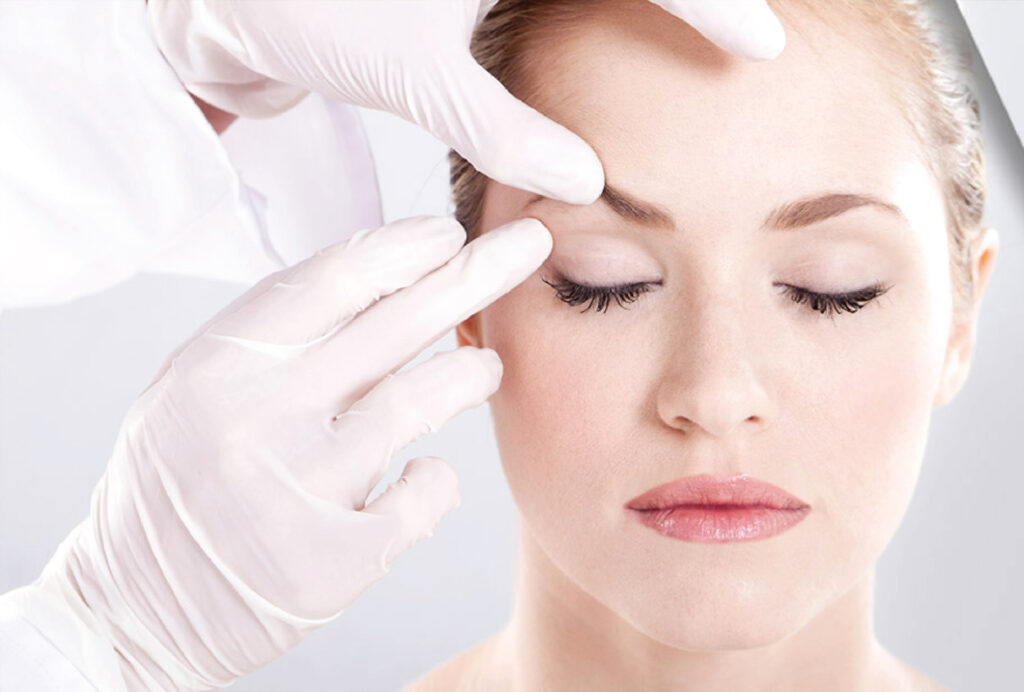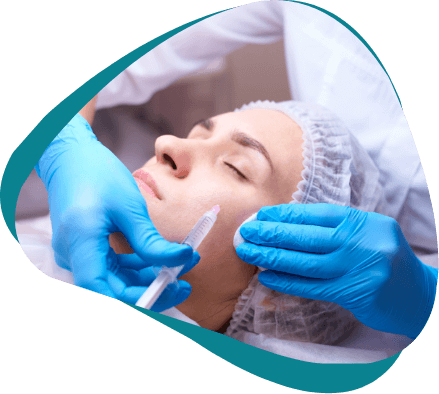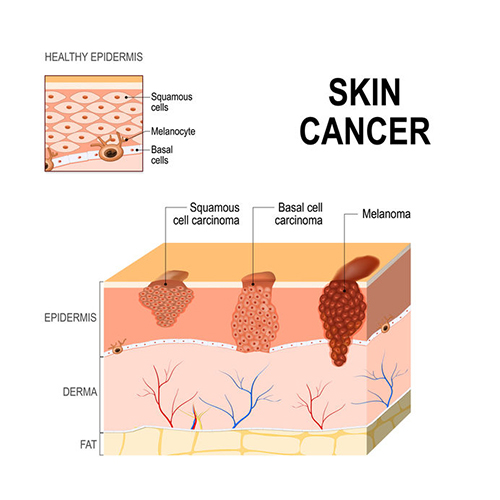Dermatology
DERMATOLOGIST IN DUBAI
Dermatologist is physician who specialize in dermatology and are trained to address a wide range of skin-related concerns. Visit Al Hana Modern Medical Center, your trusted destination for comprehensive dermatological care. Our team of experienced dermatologists is dedicated to providing effective solutions for all your skin-related concerns. With our state-of-the-art facilities and personalized approach, we strive to help you achieve and maintain healthy, radiant skin.
Dermatology is a medical specialty that focuses on the diagnosis, treatment, and prevention of conditions related to the skin, hair, nails, and mucous membranes. The skin is the largest organ of the body and serves as a protective barrier against external elements. It plays a crucial role in maintaining overall health and well-being. Dermatology covers a diverse range of conditions, including but not limited to:
Common Skin Conditions:
Dermatologist diagnose and treat various skin conditions, such as acne, eczema, psoriasis, rosacea, dermatitis, fungal infections, and rashes. They evaluate the symptoms, perform physical examinations, and may conduct further tests, such as biopsies or skin cultures, to determine the underlying cause and provide appropriate treatment.
Acne: Acne is a common skin condition characterized by the formation of pimples, blackheads, whiteheads, and inflamed lesions. Dermatologists can prescribe topical or oral medications, perform chemical peels, or provide other treatments to manage acne.
Eczema: Eczema, also known as atopic dermatitis, is a chronic inflammatory condition that causes dry, itchy, and red skin. Dermatologists may recommend moisturizers, topical corticosteroids, or immune-modulating medications to alleviate symptoms.
Psoriasis: Psoriasis is an autoimmune disorder that leads to the rapid buildup of skin cells, resulting in thick, red patches with silvery scales. Dermatologists may prescribe topical treatments, oral medications, phototherapy, or biologic drugs to manage psoriasis.
Rosacea: Rosacea is a chronic inflammatory condition that primarily affects the face, causing redness, visible blood vessels, and sometimes small bumps or pustules. Dermatologists may suggest lifestyle modifications, topical medications, or laser therapy to manage rosacea.
Dermatitis: Dermatitis refers to the inflammation of the skin and can be caused by various factors, such as irritants, allergens, or underlying health conditions. Dermatologists can identify the triggers and provide treatments to manage dermatitis effectively.

Cosmetic Dermatology:

Cosmetic dermatology focuses on enhancing the appearance of the skin, hair, and nails. Some common cosmetic dermatology procedures include:
Botox and Dermal Fillers: Botox injections and dermal fillers are used to reduce wrinkles, restore facial volume, and enhance facial contours. Botox temporarily relaxes muscles, while dermal fillers add volume to areas like lips, cheeks, and nasolabial folds.
Chemical Peels: Chemical peels involve the application of a chemical solution to the skin, which exfoliates the outer layers and stimulates cell regeneration. This treatment can improve skin texture, reduce fine lines, and treat certain types of acne scars.
Laser and Light Therapies: Laser and light-based treatments can address various skin concerns, such as pigmentation issues, sun damage, wrinkles, and unwanted hair. These treatments work by targeting specific skin structures without damaging the surrounding tissues.
Microdermabrasion: Microdermabrasion is a non-invasive procedure that exfoliates the skin using a diamond-tipped wand or fine crystals. It helps to improve skin texture, reduce mild acne scars, and promote a more radiant complexion.
Hair Restoration: Dermatologists can provide hair restoration treatments for conditions like androgenetic alopecia (pattern hair loss). Techniques include medication, platelet-rich plasma (PRP) injections, or hair transplant surgery.
Skin Cancer:
Dermatologists play a crucial role in the early detection and treatment of skin cancer. Common types of skin cancer include:
Basal Cell Carcinoma (BCC): BCC is the most common form of skin cancer and usually appears as a raised, pearly bump on the skin. It is often caused by long-term sun exposure and tends to grow slowly. Surgical excision is the most common treatment for BCC.
Squamous Cell Carcinoma (SCC): SCC typically manifests as a firm, red nodule or a scaly patch on the skin. It is primarily caused by cumulative sun exposure and may grow more quickly than BCC. Treatment options include surgical excision, Mohs surgery, or radiation therapy.
Melanoma: Melanoma is the most dangerous type of skin cancer and can spread rapidly. It often appears as a new mole or an existing mole that changes in size, shape, or color. Treatment may involve surgical excision, lymph node evaluation, chemotherapy, or immunotherapy.
Dermatologists perform regular skin cancer screenings, educate patients about skin self-examinations, and offer preventive measures to minimize the risk of skin cancer.

Pediatric Dermatology:
Pediatric dermatologists specialize in diagnosing and treating skin conditions in infants, children, and adolescents. Common conditions in pediatric dermatology include:
Atopic Dermatitis (Eczema): Eczema can affect children at a young age and requires careful management to alleviate symptoms and prevent flare-ups.
Birthmarks: Pediatric dermatologists can evaluate and treat various types of birthmarks, including vascular birthmarks (such as port-wine stains) and pigmented birthmarks (such as café-au-lait spots).
Diaper Rash: Dermatologists can offer advice and treatments to manage diaper rash effectively, which is a common concern in infants.
Infections: Pediatric dermatologists can diagnose and treat various skin infections in children, including viral, bacterial, and fungal infections.
Genetic Skin Disorders: Dermatologists with expertise in pediatric dermatology can diagnose and manage genetic skin disorders that manifest during childhood, such as epidermolysis bullosa or ichthyosis.

Dermatology encompasses a broad range of skin-related conditions, treatments, and preventive measures. Whether you need treatment for a specific skin condition, cosmetic enhancements, or specialized care for your child, consulting a dermatologist can help you achieve and maintain healthy, radiant skin. Remember to seek professional medical advice from a qualified dermatologist for accurate diagnosis and treatment recommendations tailored to your unique needs.
- Protect your skin from the sun by wearing sunscreen, seeking shade, and wearing protective clothing.
- Avoid tanning beds and prolonged sun exposure, especially during peak hours.
- Perform regular self-examinations and schedule regular skin cancer screenings with a dermatologist.
- Dermatologists may recommend a combination of topical treatments (such as retinoids or benzoyl peroxide), oral medications, and lifestyle modifications.
- Treatment plans may also include professional procedures like chemical peels or laser therapy.
- Dermatologists can recommend a range of treatments, including topical retinoids, dermal fillers, Botox injections, chemical peels, and laser resurfacing.
- The choice of treatment depends on factors such as skin type, severity of wrinkles, and individual goals.
- Dermatologists typically prescribe moisturizers, topical corticosteroids, or immune-modulating medications.
- Avoiding triggers like harsh soaps, irritants, and allergens is also important in managing eczema.
- Look for changes in moles or the development of new growths.
- Warning signs include asymmetrical shape, irregular borders, changes in color, and diameter larger than a pencil eraser.
- If you notice any changes, it’s important to have them evaluated by a dermatologist.
- Dermatologists can evaluate the underlying cause of hair loss and recommend appropriate treatments.
- Options may include medications, topical treatments, PRP injections, or hair transplant surgery.
Dermatologists may suggest lifestyle modifications (avoiding triggers like spicy foods or alcohol), topical medications, oral antibiotics, or laser therapy.
It’s recommended to have a skin check with a dermatologist at least once a year, especially if you have a history of skin cancer or other risk factors.
- Dermatologists may recommend a skincare routine tailored to your specific needs, including cleansing, moisturizing, and sun protection.
- Procedures like chemical peels, microdermabrasion, or laser treatments can also improve skin texture and tone.
- Dermatologists recommend using gentle cleansers, moisturizers, and avoiding hot showers.
- Applying moisturizer immediately after bathing helps lock in moisture.
- Humidifiers can also be used to add moisture to indoor air.

